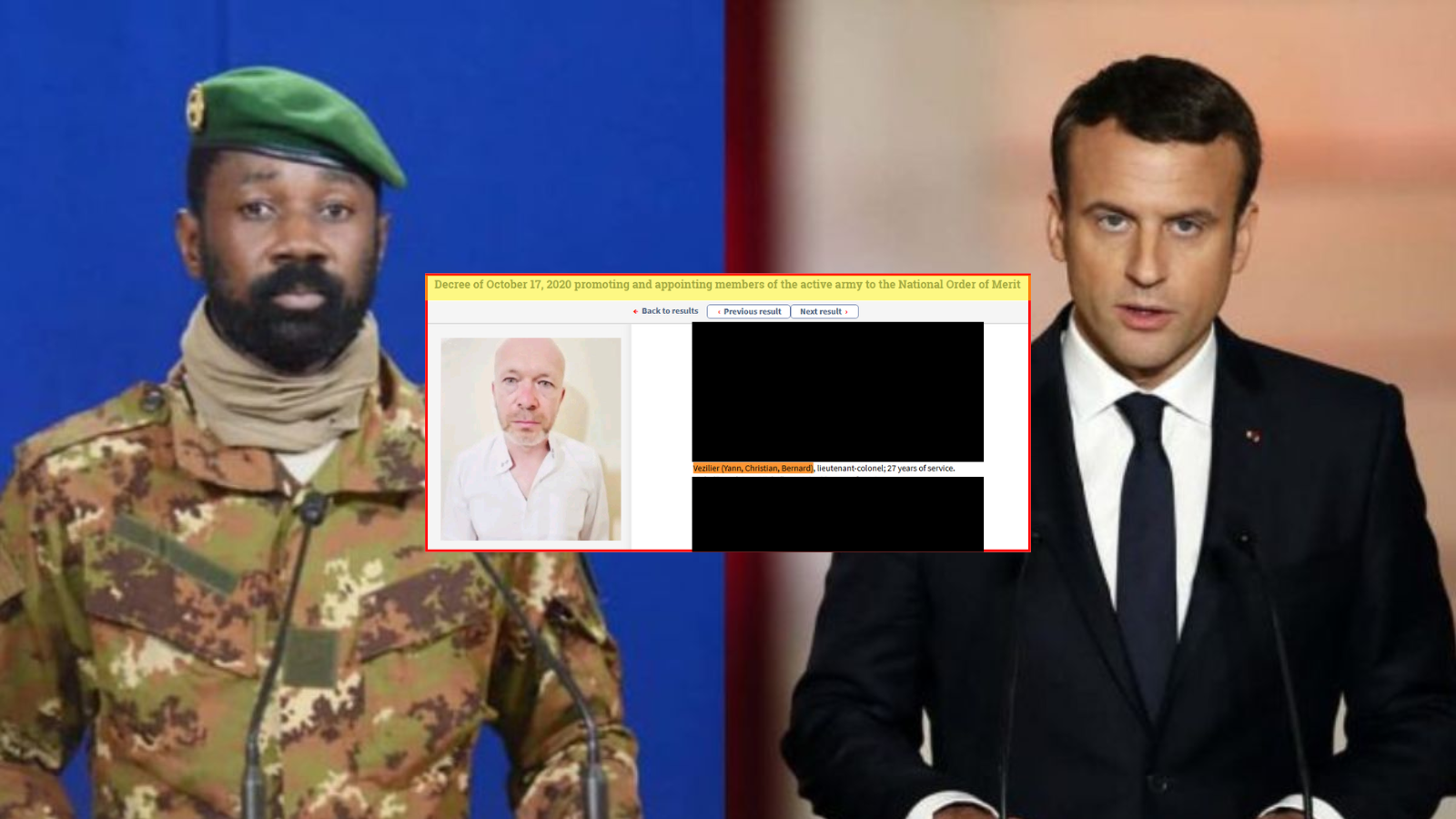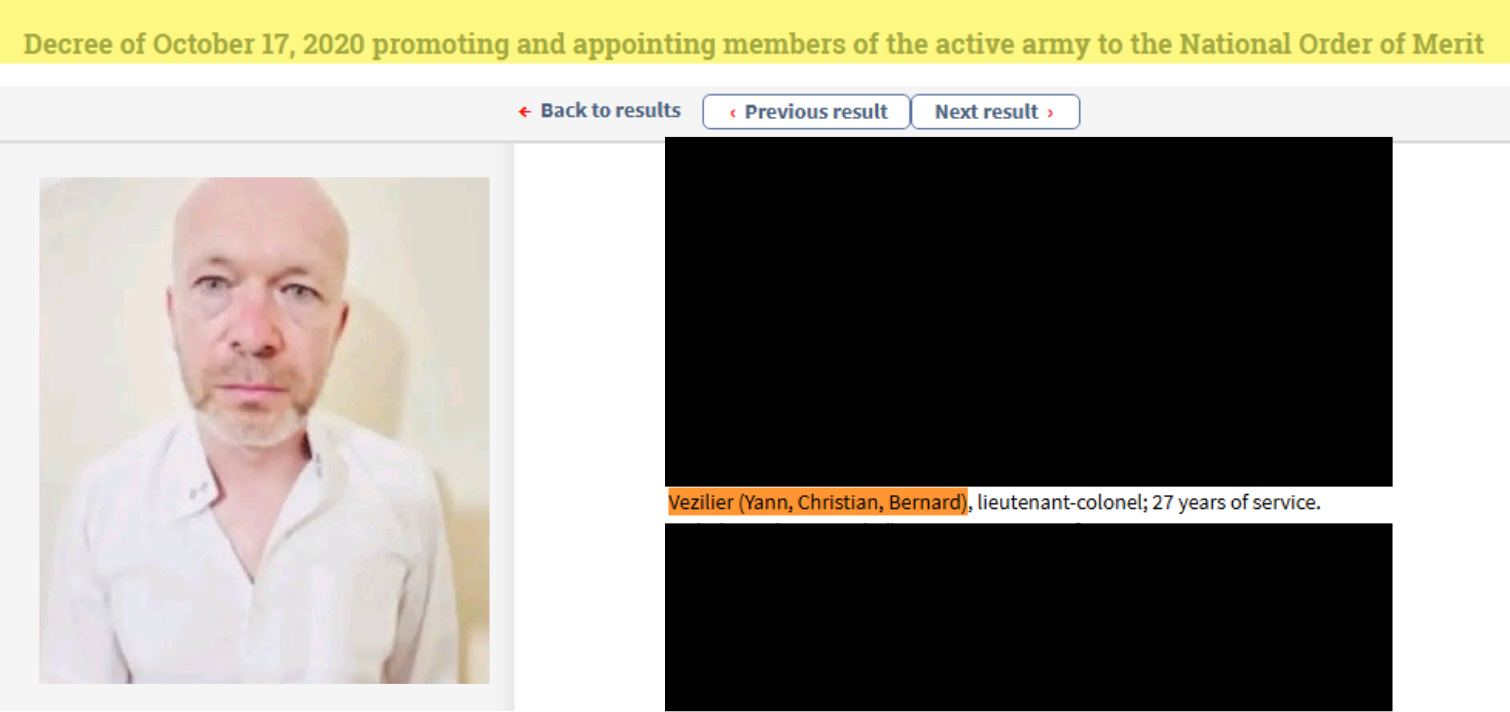
France Revives 2023 Claims, Citing Vienna Convention To Secure Release Of French Spy In Mali Coup Plot

As the Sahel steadily moves away from imperial and neocolonial influence, France, backed by its state-owned media outlet France24, has once again resorted to falsehoods. This time, Paris invoked the Vienna Convention on Consular Relations in a bid to secure the release of its spy agent, Lieutenant-Colonel Yann Vézilier, a French intelligence operative arrested in Mali over a coup plot.
Jean-Noël Barrot, France’s Minister for Europe and Foreign Affairs, claimed on Saturday that Vézilier, detained in Bamako, was merely an “Embassy employee”, France24 reported. This assertion, however, stands in stark contrast to well-documented evidence showing that Vézilier has served in France’s Air and Space Force for 27 years and covertly worked for the Directorate General for External Security (DGSE), France’s equivalent of the CIA or MI6.

Despite this record, the French Foreign Ministry failed to present evidence to substantiate its claim, nor did it specify the supposed position Vézilier held at the Embassy. Instead, it dismissed Mali’s accusations that he was collaborating with local actors to destabilise the government as ‘unjustified’.
Discussions are underway to clear up any misunderstanding and obtain the immediate release of the French embassy employee in Bamako,” the Ministry said.
However, France ignored the core issue: no legitimate “Embassy employee” should be involved in the internal political affairs of a host nation. The claim appears crafted to shield an operative from accountability and enable his quiet repatriation to Paris.
To justify its position, France further cited the 1963 Vienna Convention on Consular Relations, arguing:
The arrested employee was covered by the Vienna Convention on Consular Relations, meaning he should be released.”
This diplomatic shield is questionable. France’s ties with Mali collapsed after its counterterrorism mission, Operation Barkhane, was widely branded a failure for its inability to stop the spread of al-Qaeda- and ISIS-linked groups. Following Mali’s expulsion of French troops in 2022, along with similar moves by Niger and Burkina Faso, the Sahel states turned instead to Russia for defence partnerships. Against this backdrop, France now demands the return of a spy apprehended during a coup attempt.
Malian Security Minister General Daoud Aly Mohammedine confirmed Vézilier’s arrest on Thursday, stating that he was “working for the French intelligence services, mobilising political leaders, civil society actors, and military personnel” to destabilise the country. He announced a full-scale investigation into the coup attempt.
French subversion in the Sahel is not unprecedented. In 2024, French newspaper Le Monde published a damning report detailing Elysée’s involvement in a failed plot to oust Burkina Faso’s President Ibrahim Traoré. That crisis was only resolved after Moroccan mediation and a €60 million settlement, which led to the release of four French operatives imprisoned for a year.
In contrast to the current situation, in 2023, France claimed the four agents caught in Ouagadougou were “IT workers” at its Embassy, supposedly repairing electronic devices. Reuters even quoted an unnamed French source stating:
The French government takes note of ongoing legal proceedings, but rejects accusations that the technicians were sent to Burkina Faso for reasons other than their IT maintenance work. It calls for their immediate return to France.”
Today, the same narrative has resurfaced, only now with Vézilier, a career officer and DGSE operative, portrayed as an “Embassy employee,” as France once again leans on the Vienna Convention to demand the release of its spy.
Read More:
- US Mission In Nigeria Requires Five-Year Social Media History From Visa Applicants
- Burkina Faso Declares UN Resident Coordinator Persona Non Grata Over Report That “Conflated Terrorists With Burkinabe Military”
About The Author
Mayowa Durosinmi
author
M. Durosinmi is a West Africa Weekly investigative reporter covering Politics, Human Rights, Health, and Security in West Africa and the Sahel Region
Mayowa Durosinmi
M. Durosinmi is a West Africa Weekly investigative reporter covering Politics, Human Rights, Health, and Security in West Africa and the Sahel Region
Related Articles
AES Condemns Niamey Airport Attack, Warns of Coordinated Destabilisation
The Alliance of Sahel States has strongly condemned the armed attack on...
ByWest Africa WeeklyFebruary 2, 2026Burkina Faso Takes Legal Step Toward Nuclear Energy Development
Burkina Faso has voted to join the Vienna Convention on Civil Liability...
ByWest Africa WeeklyFebruary 2, 2026Mali Tightens Grip on Explosives Supply With New Majority Stake
The Malian government has taken majority ownership of a civil explosives manufacturing...
ByWest Africa WeeklyJanuary 29, 2026Tinubu Follows Gumi’s Lead as Nigeria Signs Turkey Defence Deal, Fueling Speculation Over Who Really Controls the Country’s Security Policy
Nigeria’s diplomatic and security strategy is once again under scrutiny after a...
ByWest Africa WeeklyJanuary 28, 2026












Leave a comment